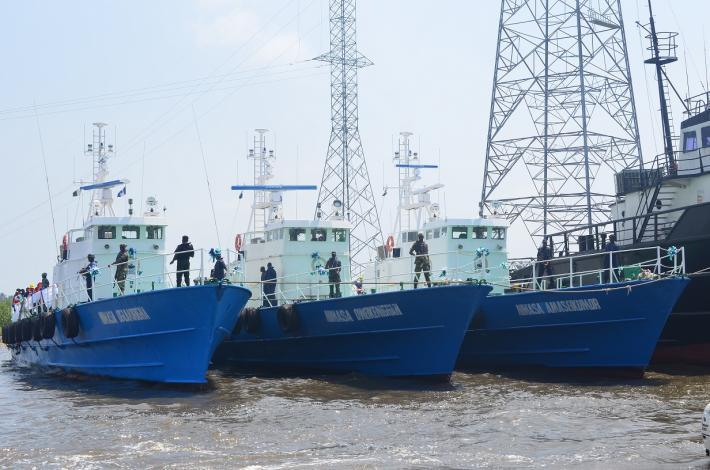Markets
NIMASA to Release Maritime Industry Forecast Q1 2018

- NIMASA to Release Maritime Industry Forecast Q1 2018
The Director-General, Nigerian Maritime Administration and Safety Agency, Dr. Dakuku Peterside, has stated that the agency will release the Nigerian maritime industry forecast in the first quarter of 2018.
According to Peterside, this is part of the initiative to reposition the maritime sector for greater efficiency in line with international best practices.
A statement issued by NIMASA on Tuesday stated that Peterside this in Lagos while noting that the forecast would deal with how developments on the international scene would affect the Nigerian maritime industry.
He said that this would serve as a guide for investors and stakeholders.
Peterside added, “On the positive side, it will look at where the opportunities will be in the years 2018 and 2019; will greater investment in oil and gas translate to more demand for offshore support vessels?
“What are the industry perspectives? What should the government and her agencies do to attract more investment in the industry, among other salient issues?”
He said that the forecast would also look at whether there would be improvement in maritime security, especially in the Niger Delta, and what impact it would have on shipping.
The DG added that the expected impact of NIMASA’s partnership with the Nigerian Content Development Monitoring Board on cabotage implementation and international shipping would be another area the forecast would focus on.
The various projected impacts of the shift to digital shipping in Nigeria and its attendant effect on Nigerian shippers will also be analysed in details, he explained, adding that the forecast would look at the impact of the global emphasis on the Blue Economy and how Nigerians could benefit from it.
On capacity building, Peterside was quoted as saying that the effect on the industry would be considered as two new specialised institutions, the Nigerian Maritime University, Okerenkoko; and the Admiralty University, were expected to begin academic session in 2018, in addition to an already repositioned Maritime Academy of Nigeria, Oron.
He listed areas of focus in the forecast to include the government’s decision on investment status in port and maritime infrastructure; impact of emphasis on reduction on environmental footprint arising from shipping; impact on coming into force of the Ballast Water Management Convention and the International Maritime Dangerous Goods’ mandatory compliance.
On the market side, Peterside maintained that the forecast would analyse how demand and supply would evolve in the industry, adding, “This report will be the most informative documentation on the future of the maritime industry in Nigeria.”